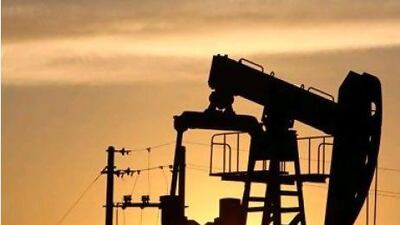The debate over peak oil is stalked by zombie ideas that live on, no matter how many times they are stamped upon. The latest significant article warning of declining oil supplies manages to revive not just one but at least six of these false concepts.
An article by the oceanographer James Murray and the former UK chief scientific adviser David King appears in the prestigious journal Nature.
It argues that conventional oil production has been stagnant since 2005 and that "the oil market has tipped into a new state … production is now … unable to respond to rising demand".
The idea that oil production has not risen above 74 million barrels per day (bpd) since 2005 relies on a very narrow definition of "crude oil". In reality, oil demand is now met from a range of sources, including biofuels and petroleum extracted from natural gas.
To the motorist, the end product is indistinguishable. Figures from the US Energy Information Administrationsuggest that, for the first time, total production topped 90 million bpd at the end of last year.
Automatically ascribing a slowdown in production growth to physical resource constraints fails to consider the economic and policy context.
Opec has not increased production significantly since 2005, not because it cannot but because of its market management - in particular reducing output to avoid oversupply when demand fell during the economic crisis.
Opec reserves are often said to be overstated, without any firm evidence being given one way or the other. Opec countries do not help themselves with their lack of transparency on reserves.
Yet the most authoritative evaluation, by the consultancy IHS Energy in 2007, saw the overstatement as minor (about 7 per cent) and more than offset by under-estimates elsewhere. As Russia with 20 years of reserves at current output rates keeps increasing production, Opec with a reserves/output ratio of more than 80 years can also do so.
The advent of shale oil and gas production has reversed declining US production, is now spreading globally, and can be commercial at an oil price of just US$30 a barrel.
This breakthrough seems completely to have passed by peak-oil advocates. They claim the end of "easy oil", without noting that technology continually makes unconventional oil into conventional.
And it seems remarkable to write a paper on oil production that does not mention either Opec or Iraq, which has unquestionably huge reserves of easy oil and ambitious, if challenging, plans to increase production sharply.
The Murray and King piece goes on to cast doubt on global coal and natural gas reserves. But this is simply irrelevant. Oil's primary, hitherto irreplaceable use is as fuel for transport. Coal and gas are largely interchangeable, and can be substituted by nuclear, wind and solar power, and other renewable energies.
And with more than a century's worth of resources of both coal and natural gas, it does not matter whether reserves are somewhat overstated. The production of coal, in particular, is constrained by economics and environmental concerns, not by physical availability.
The final piece in the peak-oil puzzle is the idea that declining oil production must bring a halt to economic growth. But Michael Levi from the US-based Council on Foreign Relations notes in a comprehensive demolition of the Nature article that the American economy has persistently grown much faster than its oil consumption.
The sad thing is that the solutions proposed to tackle the illusory danger of imminent peak oil - improved efficiency and alternative energy - are exactly those needed to tackle the real threat of climate change. But flawed and unscientific analysis risks crying wolf.
Robin Mills is the head of consulting at Manaar Energy, and author of The Myth of the Oil Crisis and Capturing Carbon


